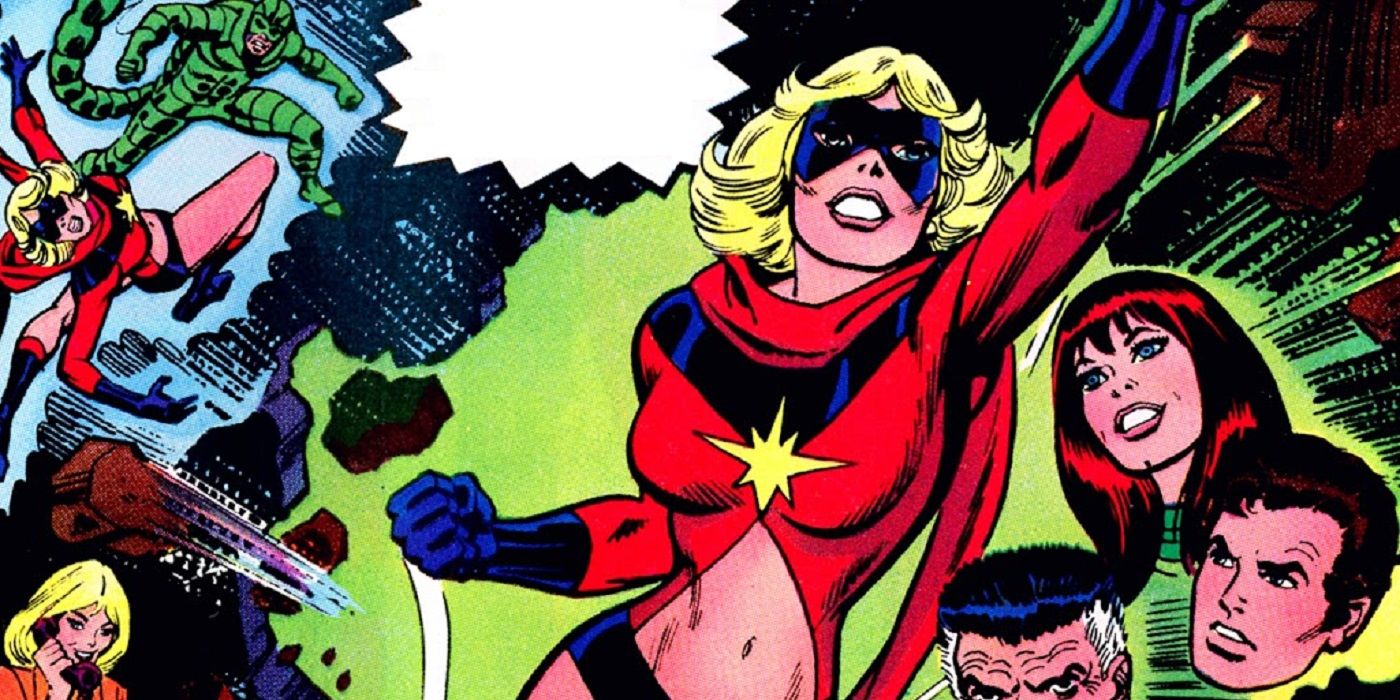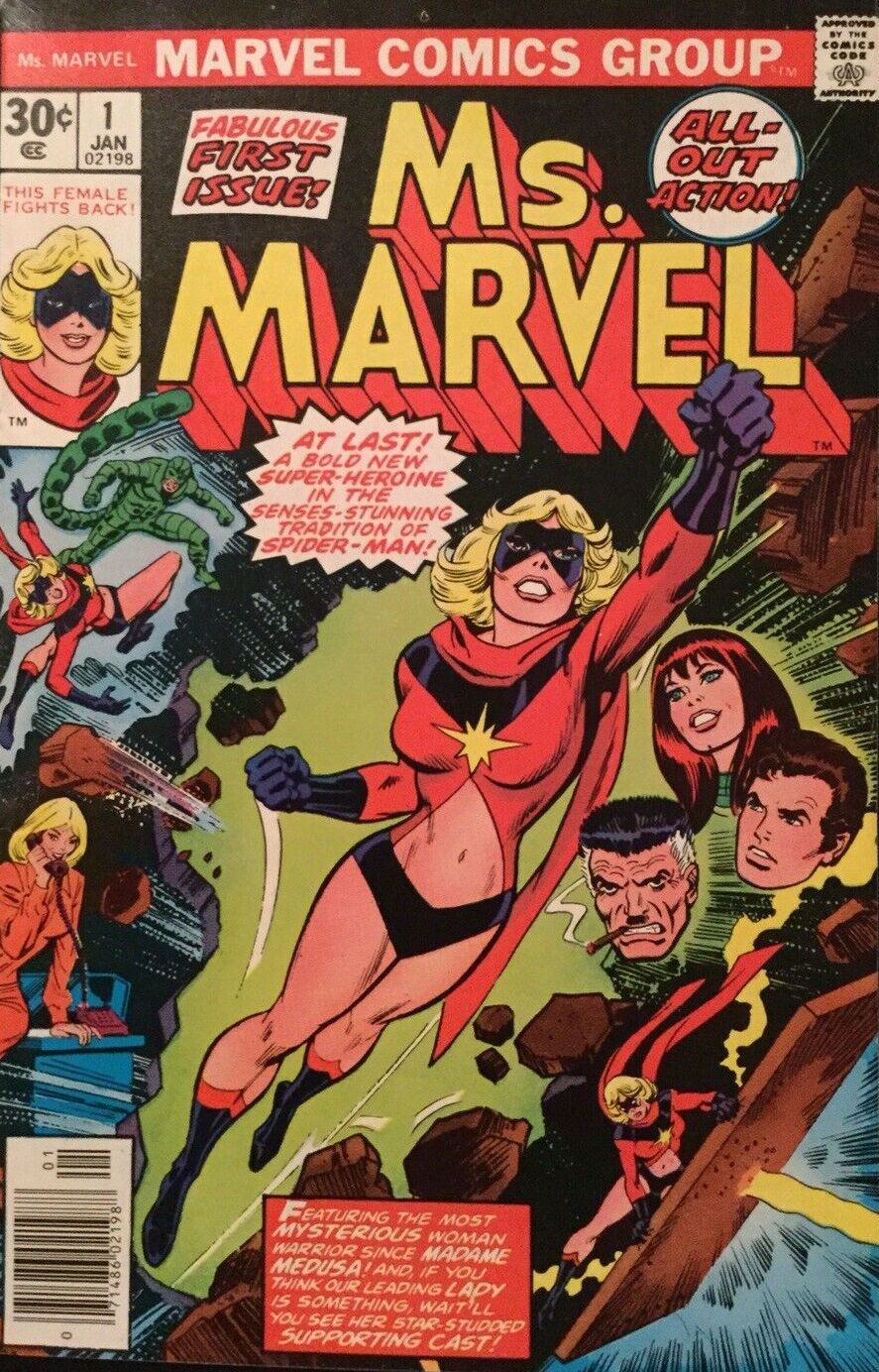Welcome to Comic Book Legends Revealed! This is the seven hundred and twenty-second installment where we examine comic book legends and whether they are true or false.
As usual, there will be three posts, one for each of the weekly three legends.
NOTE: If the CSBG Twitter page hits 11,000 followers, I'll do a bonus edition of Comic Book Legends Revealed that week. Great deal, right? So go follow the CSBG Twitter page!
COMIC LEGEND:
Carol Danvers became Ms. Marvel so that Marvel could secure a trademark on the female variation of Captain Marvel
STATUS:
A mixture of True and False.
I can't seem to find the reader's name who sent this one in (it's possible that he/she asked me on Twitter or Facebook. If you don't e-mail me your suggestion/question, it's almost impossible for me to find it months later, let alone a year later, which is how long some of these legends sometimes take). In any event, the reader wrote in to note that in the past, I've featured Comic Book Legends Revealed installments where I explained that She-Hulk was created because Marvel wanted to prevent the makers of the Incredible Hulk TV series from creating their own She-Hulk and thus taking the copyright and the trademark to the character from Marvel and also that Spider-Woman was created because Filmation was about to have a cartoon with a character named Spider-Woman and Marvel wanted to secure the trademark for themselves. This, the reader theorized that that was the same reason why Ms. Marvel was created.
The answer to that is a bit tricky. It is true that Stan Lee wanted to come up with a hero named Ms. Marvel. It's also true that the name predated it being connected to Carol Danvers (it was Gerry Conway, who ultimately created Ms. Marvel #1, that came up with the idea for making Carol Danvers Ms. Marvel). However, I think when we talk about creating a character to secure a trademark, we tend to refer to situations where there was a competing interest at play. In other words, when Marvel created Mar-Vell, the first Captain Marvel, that was specifically so that they could secure a trademark on the name (which had been abandoned by Fawcett Comics when they dropped their superhero comic book line in the early 1950s following their loss to National Comics in a copyright infringement case over whether Fawcett's Captain Marvel infringed on National's Superman copyright). Either Stan Lee or Martin Goodman did not want another company picking up the name "Captain Marvel," so it was imperative that Marvel acquire the name for itself.
However, in this situation, was there really much of a threat of another comic book company coming up with the name "Ms. Marvel?" Was it possible? Sure, but it wasn't an imperative the way that She-Hulk, Spider-Woman or Captain Marvel were.
In The Superhero Women (a 1977 Fireside Books collection of stories featuring female superheroes), Stan Lee spoke about the impetus for creating Ms. Marvel:
It bothered me for years that we didn't have one particular super heroine. Sure, we had Red Sonja, but I wanted a female superstar who would exist in the present, the real world. I kicked the idea around with Roy Thomas. We came up with the name Ms. Marvel, for two reasons: One, I wanted to use the word Marvel if possible simply because it's the name of our gregarious group of titles; and, two, it seemed the the word "Ms." totally represented the new, liberated, upbeat spirit that we wanted the strip to represent.
Generally speaking, contemporary accounts of character creations by Stan Lee tend to be a lot more accurate than stuff where he's looking back after a number of years (for instance, Lee's contemporary account of how Doctor Strange came about gave all the credit to Steve Ditko, while decades later, Lee remembered himself coming up with the idea). So while I wouldn't normally rely on Lee for a bit like this, I tend to think it's probably reasonable to do so here. It's a fairly logical explanation that isn't contradicted by any other accounts of the time (Conway, in the letters page of the first issue of Ms. Marvel notes that the name was already created before he launched the series).
Still, if you come up with a character name that you think is really good, like "Ms. Marvel," you obviously ARE thinking about it in terms of trademark purposes, right? One of the most important parts of a good superhero name IS the fact that it is memorable enough that you would want to trademark it. Was there a benefit of trademarking a derivative name to prevent other comic book companies from using the name? Sure, that benefit was certainly there. However, I think the driving force here was more a push to have a major new female superhero than to secure a trademark. Conway recalled to Polygon a while back, “I was working at Marvel and had a contract which required them to give me X number of titles to write but we were also looking to expand our reach to a wider audience, and to reach young women and young girls as potential audience […] Marvel had, historically, not had very many solo female lead books. DC [Comics] had a few, but Marvel had not very many at all.”
This isn't a case like She-Hulk or Spider-Woman where there was a clear and present danger that the name was going to be used elsewhere and Marvel had to swoop in and secure the trademark. If trademark played a part in this, it was simple a matter of "This name is so cool that someone else might come up with it on their own later." I personally don't think that that is enough to refer to the character as having been created to secure the trademark (while I would in the cases of She-Hulk, Spider-Woman and every version of Captain Marvel since Mar-Vell). I will allow, though, that it is a close enough call that it is probably mostly semantics, so I will give a rare True/False mixture for this one.
Check out some other entertainment and sports legends from Legends Revealed:
1. Was Supergirl Originally Going to Be Superman’s Love Interest in Superman III?
2. Did a Catcher Once Pick a Runner Off Third Base…With a Potato?
3. Did Josie and the Pussycats Not Receive Any Money for Product Placement?
Check back later for part 2 of this week's legends!
And remember, if you have a legend that you're curious about, drop me a line at either brianc@cbr.com or cronb01@aol.com!


